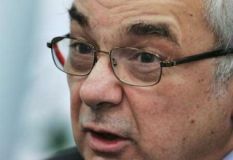UN’s Sudan envoy says will work to build trust
September 13, 2007 (BAGHDAD) — A senior United Nations official appointed to oversee implementation of Sudan’s troubled north-south peace deal said on Thursday his first priority would be to earn the trust of both sides.

“I know how sensitive the issues are, how complicated the issues are, but I intend to earn the confidence of all the parties concerned very rapidly,” Qazi told Reuters in an interview in Baghdad.
Qazi, a Pakistani diplomat who is currently U.N. envoy in Iraq, is expected to take up his post in Sudan by late October.
He said he would focus primarily on implementing the 2005 Comprehensive Peace Agreement that ended 20 years of north-south war, but that progress on that issue was linked to efforts to reach a peaceful solution to the separate conflict in Darfur.
Analysts say international concern over the Darfur crisis has diverted attention from the south, which could drift back to civil war unless progress was made to implement the peace deal.
In July northern soldiers missed a key deadline to withdraw from southern oil fields. In the past week the former rebel Sudan People’s Liberation Movement said police raided three of its offices in Khartoum, and government troops briefly besieged 61 south Sudanese soldiers.
Qazi said his experience in Iraq, where sectarian warfare has killed tens of thousands, millions have been displaced, and regional differences over distributing oil wealth threaten to paralyse parliament, echoed some of Sudan’s problems.
“Building up institutions, building up trust are absolutely essential to implement political processes. That’s the case in Iraq and I suspect that will also be the case in Sudan,” he said.
“What is really required is that the CPA (peace agreement) be implemented and that everybody have an absolutely free choice over where they want to stand.”
The U.N. Mission in Sudan, known as UNMIS, supervises the peacekeeping operation of some 10,000 personnel in south Sudan. The U.N. has a separate envoy for Darfur, but Qazi’s predecessor Pronk was also outspoken on Darfur issues.
Pronk was expelled from Sudan after he wrote on a personal Web site that the Sudanese army had lost two major battles to rebels in Darfur and that its morale was low.
When Qazi’s appointment was announced diplomats said some in south Sudan, whose population is predominantly Christian and animist in contrast with the mainly Muslim north, were unhappy because of his Muslim faith.
“If there are any images about the U.N. leaning to one side or another, (I will work) to ensure that those impressions are eliminated as soon as possible,” Qazi said.
(Reuters)
